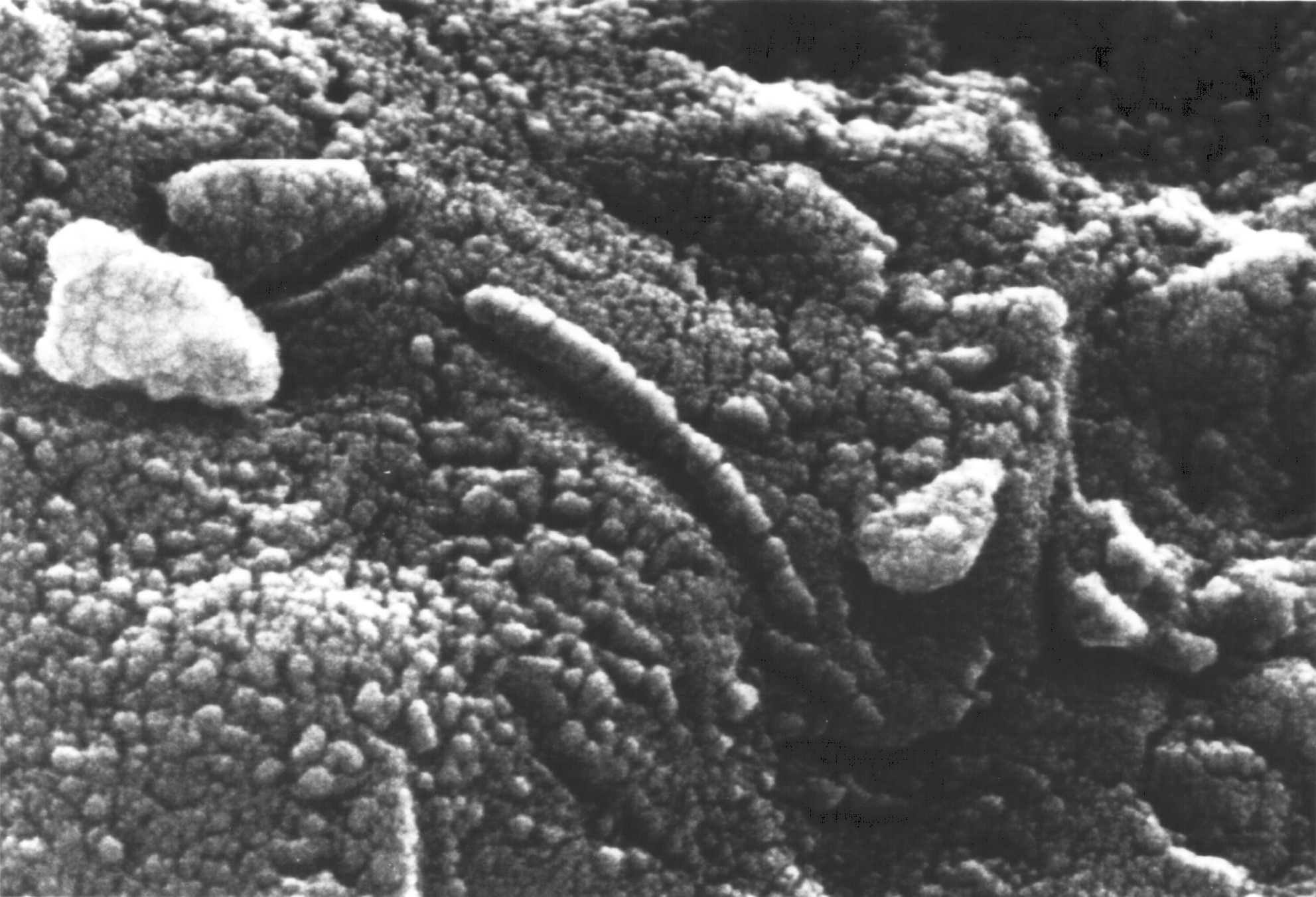What, for you, has been the most exciting scientific discovery of the past decade? How has it influenced your life or your studies? Why do you consider it to be so exciting?In 1996, before I began my A-levels, I was set some summer homework, to collect relevant biology-related news articles. This was in the days before readily available internet, and so I had to read newspapers. Just under a month before I started sixth form, the world went crazy over Martian microbes.

SEM image of "microbe" structures in meteorite ALH84001, from NASA
Later, while on my ill-fated attempt at a PhD at Washington University in St Louis, fellow students and their professors were involved with the Mars Exploration Rovers. Our Head of Department was the deputy science PI. We were all herded into the large lecture theatre one Thursday afternoon to watch NASA's "30 Seconds To Mars" video of the landings (though it didn't have this soundtrack):
The objectives for the mission were largely geological and hydrogeological - confirming the existence of water on Mars. Spirit and Opportunity did not disappoint. Within a couple of months of landing, Opportunity identified minerals indicative of a watery past - minerals such as haematite and jarosite form in the presence of water. Not only that, jarosite forms in acidic water, similar to that found in Spain's Rio Tinto, which provides an analogue for the environment in that area of Mars. Spirit found goethite, which only forms in the presence of water.
Four years later, the Phoenix lander found ice at the poles. Over the past decade rocks have also been found with cross-bedding and other features, indicating liquid water existed on Mars at some point.
In the early hours of Monday 6th August, the Curiosity rover landed on the surface of Mars, bringing with it the Mars Science Laboratory. The aim of the mission is to identify organic molecules, or at least trace molecules indicating that organics existed on the surface of Mars. This would provide evidence for life on Mars at some point in its history.
Why am I, a palaeontologist-turned-biology-teacher, so interested in the evidence for liquid water on Mars? One of the most frustrating misconceptions I come across is the erroneous idea that biologists are trying to use evolution to explain the appearance of life on Earth. In fact, evolution does nothing to explain origins of life - this is all down to abiogenesis. By studying what might have happened on Mars, we have the opportunity to look back in time. We know a fair bit already about how molecules can join together in increasing complexity, and we know a bit about early archaean organisms. But in Mars we may have a "stopped clock" of early life in the Solar System.

In short, if we can figure out why there is no complex life form on Mars, then we can figure out why there is complex life on Earth. It goes deeper than just being a "Goldilocks planet". In answering questions about our neighbouring planets, we may find the answers to the questions we're asking about ourselves.
486 words

Been watching Curiosity with, well, curiosity. The new panoramic views of an alien world are... I don't have words. There is something I wanna see though, and here you might be able to help:
ReplyDelete#NASAGetANightShotOfPhobosAndDeimos
I've asked Curiosity on Twitter. If it responds I'll let you know.
DeleteLike
Delete